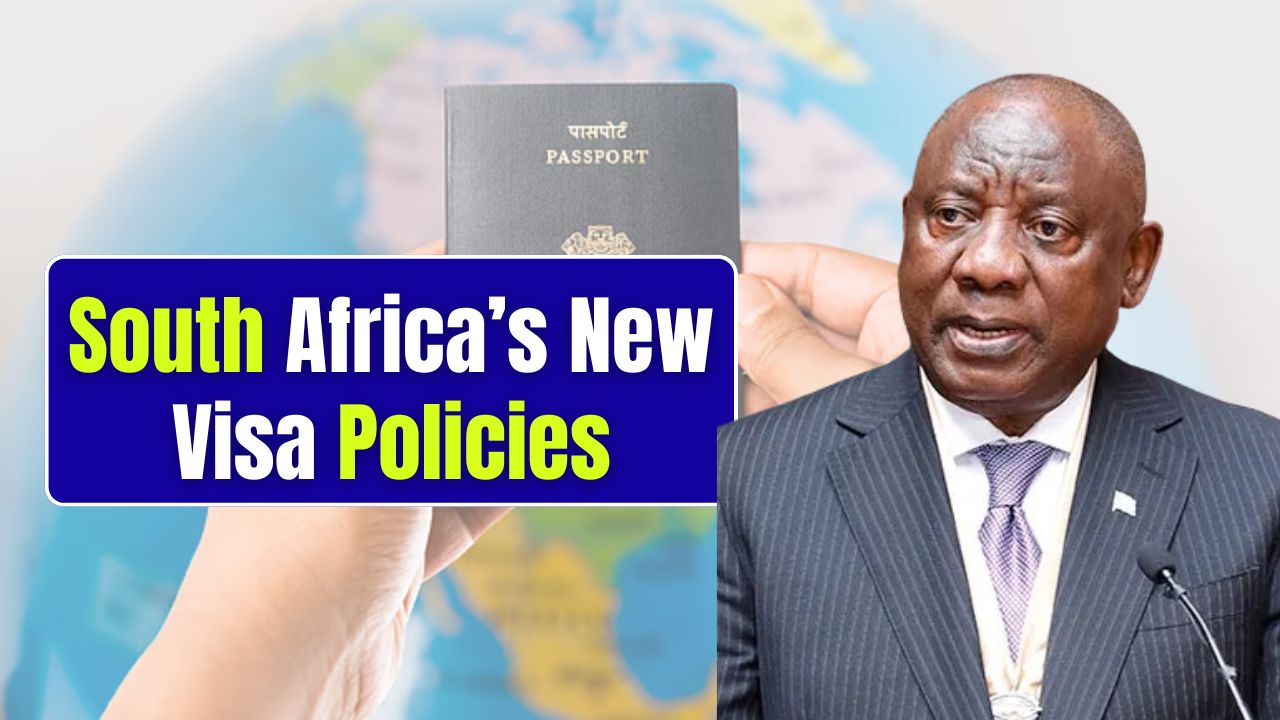In recent years, South Africa has become an increasingly popular destination for both tourists and skilled workers. To cater to the growing demand for international travelers and professionals, the South African government has introduced new visa options aimed at boosting tourism and addressing the country’s need for skilled labor.
These visa changes are designed to make it easier for tourists to explore South Africa and for skilled professionals to contribute to key sectors of the economy. This article will explore these new visa options, their potential impact on the economy, and what they mean for future travelers and skilled workers seeking opportunities in South Africa.
Introduction to South Africa’s New Visa Options
South Africa’s government has recognized the importance of attracting both tourists and skilled workers to foster economic growth and support the country’s development goals. As part of a broader initiative to enhance South Africa’s appeal on the global stage, the country has introduced several new visa categories designed to make it easier for people to visit, work, and contribute to the local economy.
These new visa options address specific needs, from attracting high-value tourists to bringing in skilled professionals in industries facing talent shortages.
New Tourist Visa Options
For tourists, the South African government has introduced more flexible visa options that encourage longer stays and reduce barriers to entry. One of the key highlights is the introduction of a long-term tourist visa that allows visitors to stay in the country for up to two years.
- This visa option is ideal for those who wish to explore South Africa’s rich cultural and natural heritage, engage in business activities, or simply experience life in one of the most diverse and vibrant countries on the African continent.
- The new tourist visa system also includes measures to streamline the application process, making it easier and faster for travelers to obtain their visas. This includes an online application platform, which is designed to reduce wait times and improve efficiency in the visa approval process.
- Additionally, South Africa has removed certain restrictions that previously limited the ability of tourists to extend their stays, providing greater flexibility for those who wish to remain in the country longer.
Visas for Skilled Workers: Bridging the Talent Gap
South Africa’s economy, like many others, relies on a steady influx of skilled labor to support key industries such as healthcare, engineering, technology, and finance. In recognition of the need to address talent shortages, South Africa has introduced specialized visas for skilled workers.
These new visa options aim to attract highly qualified professionals from around the world who can contribute to the country’s economic growth and development. The Skilled Worker Visa allows individuals with expertise in fields that are in demand in South Africa to apply for a work visa. This visa option is particularly beneficial for professionals in sectors such as information technology, medicine, engineering, and teaching.
The Skilled Worker Visa includes provisions for a more streamlined application process, with fewer bureaucratic hurdles for applicants. Additionally, the visa allows workers to bring their families along, providing them with the opportunity to settle and work in South Africa as well. This move is expected to help attract top talent and fill critical skill gaps in the country’s labor market.
The Impact on South Africa’s Economy
The introduction of new visa options for both tourists and skilled workers is expected to have a significant impact on South Africa’s economy. By attracting more international tourists, the country stands to benefit from increased spending in sectors such as hospitality, transportation, and retail.
Tourism has long been one of South Africa’s key industries, and these new visa policies are designed to strengthen this sector, creating more jobs and boosting the overall economy.
Similarly, by attracting skilled professionals to work in key industries, South Africa can enhance its competitiveness on the global stage. The influx of skilled workers will help to address labor shortages, increase productivity, and drive innovation in critical sectors. As a result, South Africa’s economy can grow more rapidly, creating new opportunities for local workers and businesses.
How the New Visa Options Benefit Skilled Workers and Tourists
For tourists, the new long-term visa options mean more freedom and flexibility when planning a visit to South Africa. These changes also make it easier for tourists to return multiple times, which could result in more extended stays and repeat visits.
For skilled workers, the specialized visa programs create a clearer pathway to entering the country’s workforce. These professionals are also given the opportunity to bring their families, fostering long-term residency and integration into the local community.
Challenges and Considerations
While the new visa options are a step in the right direction, there are some challenges that may arise. The demand for these visas could overwhelm the application system, leading to delays and complications in the approval process. Furthermore, there are concerns about the economic impact of bringing in large numbers of skilled workers, particularly in relation to local job markets.
To address these concerns, the government will need to ensure that the new visa policies are well-managed and balanced with the needs of the local workforce.
Conclusion
The introduction of new visa options for tourists and skilled workers in South Africa marks a significant shift in the country’s approach to immigration and economic development. By attracting more international tourists and skilled professionals, South Africa is positioning itself as a global hub for innovation, business, and culture.
The long-term benefits of these changes will likely be felt across various sectors, helping to strengthen the country’s economy and create more opportunities for both local and international communities.




